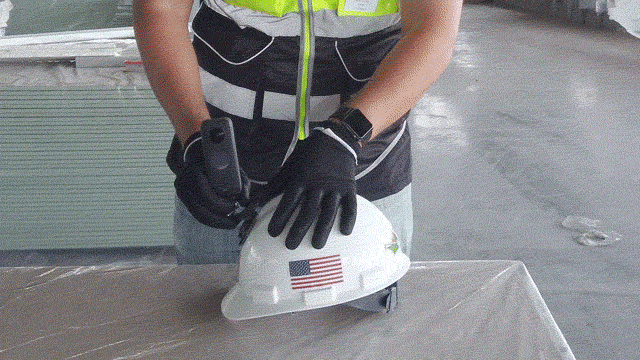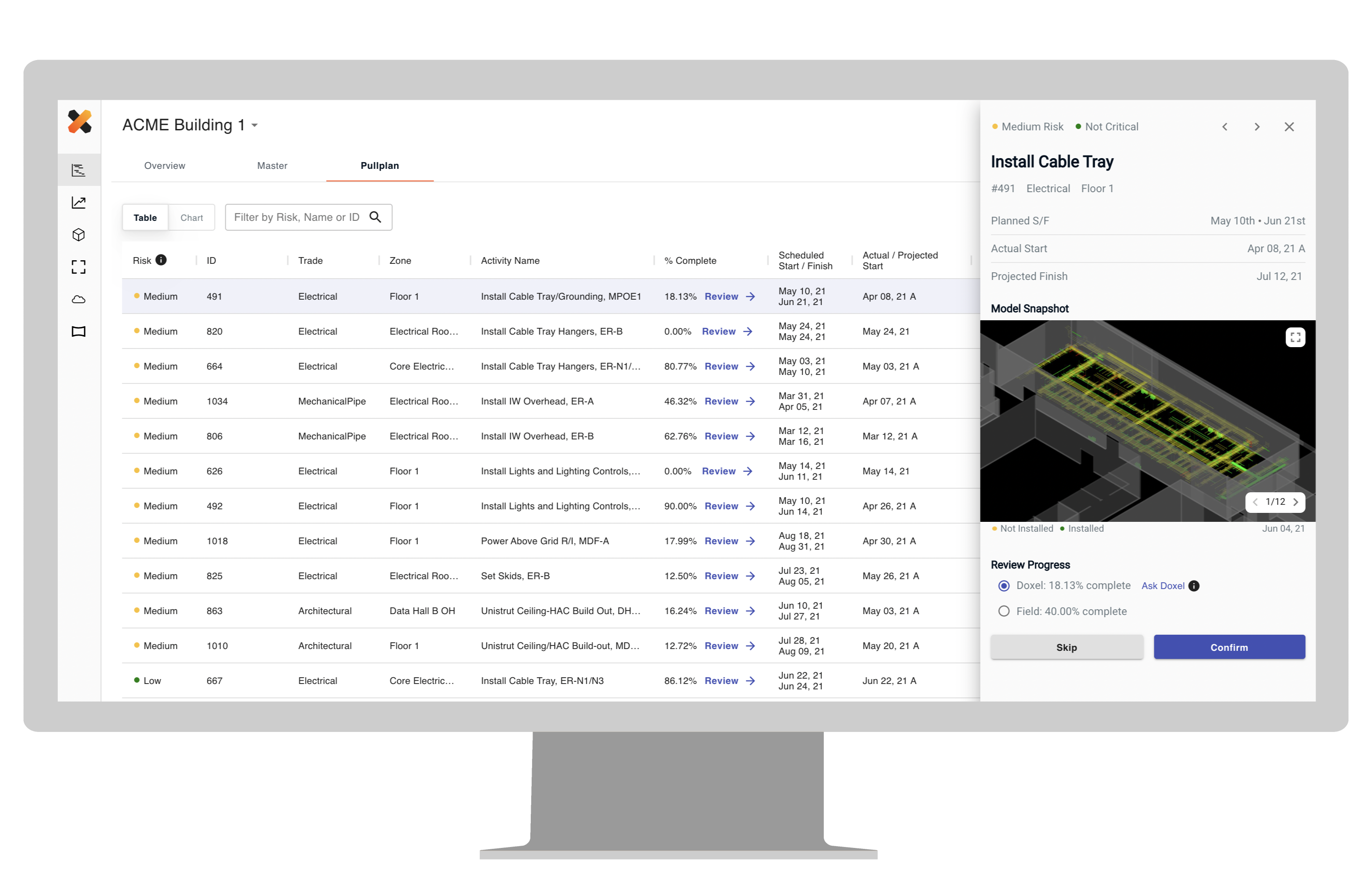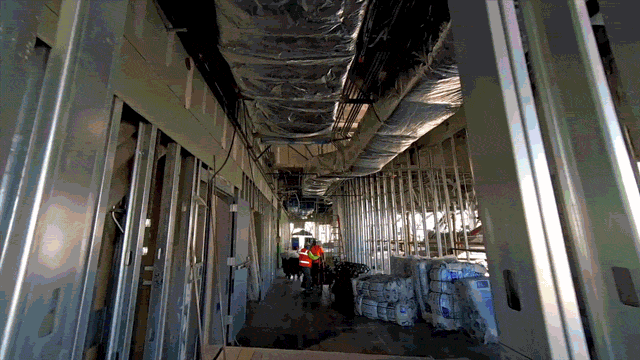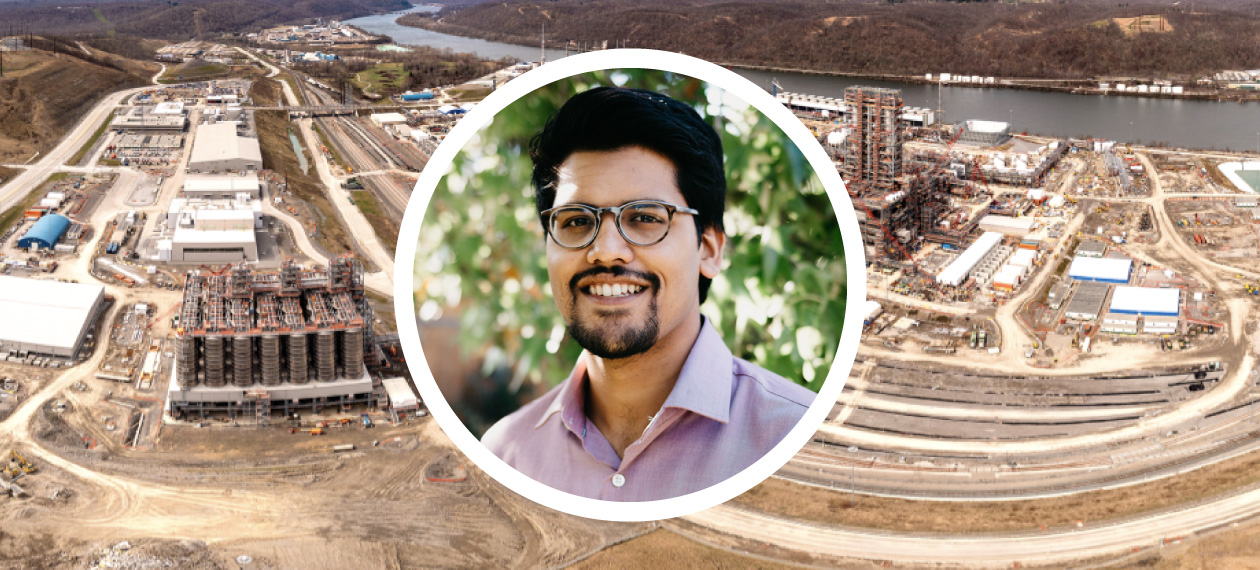Saurabh Ladha grew up the son of a manufacturing entrepreneur, witnessing first-hand the financial pains caused when construction of a new facility is delayed by months — and sometimes even longer.
Manufacturing itself has come a long way over the years. As more and more manufacturing facilities incorporate artificial intelligence (AI) technology, the manufacturing process has been optimized, saving companies bundles as they strive to make their systems as efficient as possible.
Today, the technology that has changed manufacturing forever is beginning to reach the construction sector. Ladha’s company Doxel, which offers an AI Powered Project Controls platform for construction projects, is at the forefront of that technology, promising to change how we build in the 21st century.
“Computer vision technology, machine learning, artificial intelligence: tools such as these that have dramatically altered the processes of so many industries hadn’t before been leveraged for construction,” Ladha says. “By listening to the industry and understanding the real-world challenges, we’ve harnessed this technology to provide the types of insights that can have true bottom line impact.”

Doxel incorporates that technology, offering companies the ability to reach new levels of predictability and control during a project. That’s especially good news for the healthcare industry, where a multitude of factors can complicate and delay construction, extending the calendar and driving up costs.
We ask him all about it.
What are the biggest challenges in the marketplace right now? What are you hearing from healthcare facilities leaders?
I think there are three categories of issues that I’m hearing most often.
The first category is in pre-construction, and in how difficult it is to build an estimate for a project.
A credible estimate is made up of a lot of opinions. There's obviously an art and a science to it, but there's a very deep lack of automation in building facilities. Even with facilities that are similar, there can be wide gaps in estimating how much they'll cost, and in estimating how long it will actually take to build them. It’s not as standardized as perhaps healthcare leaders would want it to be. Sometimes you're building similar things over and over, but it can still be a pretty big lift to implement best practices learned from past projects to better estimate how much each new project will cost and how long it will take. So from that perspective, on the planning side, there's a vacuum there. Now that vacuum is rapidly being filled with new technology and tools that are applying artificial intelligence to estimation, design, and scheduling.
I think the second big category is having more real-time visibility into how the construction of facilities is actually progressing. One thing that I hear about a lot is predictability: “We want predictability and we want more predictability.”
And then third, of course, is post-construction. Healthcare facilities tend to go through a lot of renovation; they're often fitting in new oncology machines, new MRI machines — new this and new that. They're always upgrading, and having an accurate digital representation of what their facility looks like at any given point in time is something that a lot of folks don't have. And that’s something they really want, because they want to renovate in an intelligent way and they want to renovate rapidly.
On the facilities maintenance side, we hear about construction leaders in healthcare who want more proactive analytics on, say, “Hey, this needs to be maintained. This is up for maintenance, that's up for maintenance. You need to contact this supplier, you need to contact that supplier.” So there's a little bit of a vacuum when it comes to proactive management of these facilities, too.
How can AI and Doxel address such issues?
What Doxel does is provide a real-time understanding of schedule, budget, and cost performance on projects. And that helps in two ways.
One, it helps folks detect problems on a jobsite before they snowball into larger concerns. Secondly, it helps them build a database of best practices that they can actually use in pre-construction by referencing a benchmarking database of how their facilities construction projects performed in the past — and at a very granular and objective level.

Doxel's User Interface
Some of our customers start out using our tool in the construction phase to get this real-time understanding of risk. Then we gradually start to help them in the pre-construction phase where they can dive into the history of their past projects and plan better based on what's happened in the past because we provide them with objective data that they otherwise would not have.
Reported vs. actual costs is always a concern among construction projects. How can AI help bridge that gap?
One of the things that we find is that on average 20 percent of construction activities are actually at a different state of progress than people think they are at. With a 20 percent gap on a schedule line item that costs millions of dollars — that’s a pretty big deal. But now, AI can provide objective and transparent data on production tracking.
When you think about pre-construction, construction, and post-construction, I feel that in a decade, a lot of design activities are going to be assisted with AI. Designing a facility will almost become like putting together a set of Lego blocks. AI is now making very intelligent recommendations on how to design around, say, a change that a surgeon has asked you to make. For example, the capability to provide estimates on how much that change will cost is going to happen in real-time with AI recognizing patterns from the past and figuring out what it's actually going to cost to make that change.
Doxel is the only solution in the market that can take video footage of a job site, 3D designs, project budget, and project schedule and tell clients exactly how much progress has occurred on their job site today and how much will occur in a week, a month, or a year. Additionally, based on this data, tell clients how delayed their project will be and how much money this delay will cost. This look into the future is unique to Doxel and enables our clients to proactively mitigate schedule delays and cost overruns – critical when a single week delay can result in millions of dollars of losses.
In the post-construction phase, you're going to have ambient tools that are constantly monitoring your entire facilities, constantly looking for any problems and practically solving them. You're going to have end-to-end capability, ultimately leading to lower costs, in building a facility and managing that facility once it’s built. And that, ultimately, is going to lower the cost of healthcare.

Twenty percent is a big number.
On the projects that we've been tracking, on average, 20 percent of the activities are incorrectly reported. Now, that could be happening because of human error. It could be happening for a variety of reasons. But that's pretty significant.
On a $300 million project, if 20 percent of your activities are not being reported correctly, you don't have an accurate understanding of exactly where you're at in terms of the construction of that facility. And if you don't know where you're at, you don't know where you're going. You can't optimize what you can't measure. So that's a really, really big gap in construction right now, which is pretty shocking given that the world spends trillions a year on building. And in healthcare especially this is a big deal because hospitals are super complex.
And AI can fix that?
AI is basically technology that teaches computers how to recognize patterns. So rather than people spending time on finding those patterns themselves, it frees them up, allowing them to make decisions on those patterns the AI finds.
Want to find out more? Join our Mastermind roundtable session on October 7 at 1 p.m. ET where Ladha will join us in an open conversation about "The Future of AI in Healthcare Construction." Sign up for free here.
Posted by
Collaborate with your Peers!
HealthSpaces is a community for people that plan, design, build and operate spaces where healthcare is delivered.
June 7-9, 2026 | Braselton, GA
Learn More




-4.png)
-Dec-09-2025-05-48-44-4379-PM.png)
-4.png)
-1.png)
-2.png)

Comments